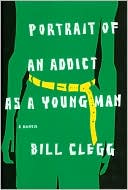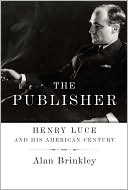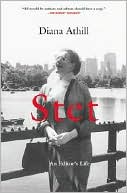Time Was Soft There: A Paris Sojourn at Shakespeare & Co.
Wandering through Paris's Left Bank one day, poor and unemployed, Canadian reporter Jeremy Mercer ducked into a little bookstore called Shakespeare & Co. Mercer bought a book, and the staff invited him up for tea. Within weeks, he was living above the store, working for the proprietor, George Whitman, patron saint of the city's down-and-out writers, and immersing himself in the love affairs and low-down watering holes of the shop's makeshift staff. Time Was Soft There is the story of a...
Search in google:
"Some bookstores are filled with stories both inside and outside the bindings. These are places of sanctuary, even redemption—-and Jeremy Mercer has found both amid the stacks of Shakespeare & Co."—-Paul Collins, author of Sixpence House: Lost in a Town of BooksIn a small square on the left bank of the Seine, the door to a green-fronted bookshop beckoned. . . .With gangsters on his tail and his meager savings in hand, crime reporter Jeremy Mercer fled Canada in 1999 and ended up in Paris. Broke and almost homeless, he found himself invited to a tea party amongst the riffraff of the timeless Left Bank fantasy known as Shakespeare & Co. In its present incarnation, Shakespeare & Co. has become a destination for writers and readers the world over, trying to reclaim the lost world of literary Paris in the 1920s. Having been inspired by Sylvia Beach's original store, the present owner, George Whitman, invites writers who are down and out in Paris to live and dream amid the bookshelves in return for work. Jeremy Mercer tumbled into this literary rabbit hole and found a life of camaraderie with the other eccentric residents, and became, for a time, George Whitman's confidante and right-hand man. Time Was Soft There is one of the great stories of bohemian Paris and recalls the work of many writers who were bewitched by the City of Light in their youth. Jeremy's comrades include Simon, the eccentric British poet who refuses to give up his bed in the antiquarian book room, beautiful blonde Pia, who contributes the elegant spirit of Parisian couture to the store, the handsome American Kurt, who flirts with beautiful women looking for copies of Tropic of Cancer, and George himself, the man who holds the key to it all. As Time Was Soft There winds in and around the streets of Paris, the staff fall in and out of love, straighten bookshelves, host tea parties, drink in the more down-at-the-heels cafés, sell a few books, and help George find a way to keep his endangered bookstore open. Spend a few days with Jeremy Mercer at 37 Rue de la Bucherie, and discover the bohemian world of Paris that still bustles in the shadow of Notre Dame."Jeremy Mercer has captured Shakespeare & Co. and its complicated owner, George Whitman, with remarkable insight. Time Was Soft There is a charming memoir about living in Whitman's Shakespeare & Co. and the strange, broken, lost, and occasionally talented, eccentrics and residents of this Tumblewood Hotel."—-Noel Riley Fitch, author of Sylvia Beach and the Lost Generation: A History of Literary Paris in the Twenties & Thirties "There does seem to be something about the odd ducks that work at bookstores. Jeremy Mercer has captured the story of a wonderful, unique store that could only be born out of a love for books and the written word."—- Liz Schlegel, the Book Revue bookshop, Huntington, New York Publishers Weekly Mercer explains his memoir's title this way: "Hard time goes slowly and painfully and leaves a man bitter.... Time at Shakespeare and Company was as soft as anything I'd ever felt." His graceful narrative follows struggling writers as they live on potato soup and dreams at Paris's famous expatriate bookshop. Mercer, a former Ottowa Citizen crime reporter, finds himself at Shakespeare one gloomy Parisian day in 1999, in his late 20s, with not much money and no plans for the future, trying to evade some angry newspaper sources back home. With little fanfare, he is taken into the store by its owner, George Whitman, a kindly yet scatterbrained man, who explains, "I run a socialist utopia that masquerades as a bookstore." Mercer begins working as an eager unpaid employee, running errands, acting as a referee between the writers who hang out there and ringing up sales (it's no B&N superstore: when Mercer asks where the credit card machine is, he's told, "Dude, Shakespeare and Company doesn't even have a telephone. Of course we don't take credit cards"). Mercer portrays the assorted characters and their adventures with an eye for detail and a wry sense of humor. Francophile book lovers will enjoy his finely crafted memoir. Agent, Kristin Lindstrom. (Nov. 5) Copyright 2005 Reed Business Information.
\ Time Was Soft There\ 1.It was a gray winter Sunday when I came to the bookstore.As had been my habit during that troubled time, I was out walking. There was never a specific destination, merely an accumulation of random turns and city blocks to numb the hours and distract from the problems at hand. It was surprisingly easy to forget oneself among the bustling markets and grand boulevards, the manicured parks and marble monuments.On this particular day, a thin drizzle had begun falling early in the afternoon. At first, it was barely enough to wet the wool of a sweater, let alone interrupt this serious business of walking. But later, toward dusk, the skies abruptly thundered and opened into a downpour. Shelter was needed, and from where I'd been caught near the cathedral of Notre Dame, the yellow-and-green shop sign could just be glimpsed on the other side of the river.By then, I'd been in Paris a month, long enough to hear vague rumors about the legendary bookstore. I'd been intrigued, of course, and had often meant to visit. Yet as I crossed the bridge, with the wind whipping at my pant legs and umbrellas sprouting around me, these rumors were far from mind. My only thought was to escape the storm and idle the rainy minutes away.Out in front of the store, a tour group bravely posed for one last round of photographs. They used thick guidebooks to shield their cameras and their teeth were clenched into chattering smiles. Onewoman glared from beneath the hood of a rain slicker as her husband twisted a complicated lens. "Hurry," she urged. "Just hurry."Through the fog of the shop's main window, there could be seen a blur of warm light and moving bodies. To the left stood a narrow wooden door, its green paint wrinkled and chipped. With a faint creak, it swung open to reveal a modest delirium.A glittering chandelier hung from a cracked wooden ceiling beam, while in the corner an obese man squeezed rainwater from his turquoise muumuu. A horde of customers circled the desk, clamoring for the clerk's attention in a loud mash of languages. And the books. The books were everywhere. They sagged from wooden shelves, spilled from cardboard boxes, teetered in tall piles on tables and chairs. Stretched along the windowsill and taking in this mad scene was a silky black cat. I swear it looked up at me and winked.There was a sudden spray of wind as the tour group pushed inside the store. I was bounced forward, past the crowded desk, then up two stone stairs painted with the words LIVE FOR HUMANITY and through into a large central room. Here, tables and shelves overflowed with more books, two doorways led deeper into the store, and a murky skylight was set overhead. Most unusual was what this skylight cast down upon: an iron-rimmed wishing well, where a man on bended knee was clawing out coins of high denomination. As I approached, he glared up at me and quickly shielded his bounty with a crooked arm.Giving this fellow wide berth, I entered a narrow passage and found myself surrounded by books written in what appeared to be Russian. A wrong turn took me down a dead end to a sink surrounded by stacks of yellowed nature magazines. There was a soapy razor lying on an issue featuring the jungles of Madagascar. A dab of foam added an unnatural spot to a reclining leopard.Backing up, I arrived at a wall of German novels, then, stumbling slightly, there was another turn and a loose pyramid of glossy-covered art books. To one side was a stained-glass alcove with a bare bulb flickering inside. A woman was crouched there, muttering in Italian and trying to decipher the book titles in this shaky light.Finally, after stepping through another doorway, I was back in the room with the wishing well. The man who plunged his hand in the coins had vanished, but now the tour group had surged ahead and laid claim to the space. Half-blinded by flashing cameras, I was jostled among wet shoulders as they herded past me and into the very labyrinth from which I'd just emerged.It was at this juncture that I decided a café would be a calmer harbor from the storm. Making a cautious retreat past the clerk and the winking black cat, I went back out the green door. The sting of rain made me pause to reconsider, and as I stood huddled in the doorway, I noticed a wooden bookcase drilled into the wall beside the store window. The paperbacks were damp and bloated, but they cost just twenty-five francs, a sum even I could afford in those desperate days. A copy of A Portrait of the Artist as a Young Man edged out at me. Guessing it would be an inexpensive way to swallow time, I ventured back inside.When it came my turn to be served, the young woman at the desk gave me a bright smile and folded open the cover of my book. With meticulous care, she stamped the title page with the crest of the Shakespeare and Company bookstore. Then she invited me upstairs for tea.TIME WAS SOFT THERE. Copyright © 2005 by Jeremy Mercer. All rights reserved. Printed in the United States of America. No part of this book may be used or reproduced in any manner whatsoever without written permission except in the case of brief quotations embodied in critical articles or reviews. For information, address Picador, 175 Fifth Avenue, New York, N.Y. 10010.
\ From the Publisher\ "Jeremy Mercer's tale of George Whitman and his beloved bookstore is a book of revelations, for it tells the hard-to-discover true story of George's life and of the twenty-thousand-and-one nights of this enchanted place that continues to be, for its habitées as well as for its creator, a way of life."--Lawrence Ferlinghetti, cofounder and owner, City Lights Bookstore\ "The memoir is much more than an entertaining romp through Parisian literary bohemia at the turn of the millennium. Time Was Soft There will likely be the last firsthand account of an aging legend."--Newsweek\ \ "Mercer has fashioned a colorful de facto biography of Whitman . . . a tightly written, insightful memoir of Left Bank literary radicalism. A great read, both funny and quietly moving."--San Francisco Chronicle\ "The milieu he evokes, while a long way from that of the Lost Generation, has its own charm."--The Wall Street Journal\ "The memoir ably captures a romanticized version of the bum's life."--The New Yorker\ "Mercer is a fine writer with a keen and jaundiced eye."--Chicago Tribune\ \ \ \ \ \ Publishers WeeklyMercer explains his memoir's title this way: "Hard time goes slowly and painfully and leaves a man bitter.... Time at Shakespeare and Company was as soft as anything I'd ever felt." His graceful narrative follows struggling writers as they live on potato soup and dreams at Paris's famous expatriate bookshop. Mercer, a former Ottowa Citizen crime reporter, finds himself at Shakespeare one gloomy Parisian day in 1999, in his late 20s, with not much money and no plans for the future, trying to evade some angry newspaper sources back home. With little fanfare, he is taken into the store by its owner, George Whitman, a kindly yet scatterbrained man, who explains, "I run a socialist utopia that masquerades as a bookstore." Mercer begins working as an eager unpaid employee, running errands, acting as a referee between the writers who hang out there and ringing up sales (it's no B&N superstore: when Mercer asks where the credit card machine is, he's told, "Dude, Shakespeare and Company doesn't even have a telephone. Of course we don't take credit cards"). Mercer portrays the assorted characters and their adventures with an eye for detail and a wry sense of humor. Francophile book lovers will enjoy his finely crafted memoir. Agent, Kristin Lindstrom. (Nov. 5) Copyright 2005 Reed Business Information.\ \ \ Library JournalFormer journalist and novelist Mercer (High Times and Sweet Crimes) is broke and on the run. So he leaves Canada, ending up in Paris, where he takes refuge at Shakespeare & Co., a bookstore renowned for its literary history and promise to house writers free of charge in exchange for their work. The list of "so and so slept here" reads like a who's who of literature. Mercer tells an enchanting story of his stay at the shop, the people he meets, and the relationships he forges there. But he doesn't overromanticize the experience: The title refers to soft time, as in soft jail time (as opposed to hard jail time). The store is not the easiest place to live; for that matter, having no money is not an easy way to live-but it could be worse. This book explores the sometimes dramatic dynamics of several creative personalities living under one roof. It is also about people finding their own way, in their own time, and in their own style. Mercer subtly entwines readers in the residents' lives, making them feel as though they are actually there. Highly recommended for public and academic libraries.-Jamie Engle, Richardson, TX Copyright 2005 Reed Business Information.\ \ \ \ \ Kirkus ReviewsA Canadian journalist who lived for a time at famed Parisian bookstore Shakespeare and Co. tells the story of its iconoclastic owner and his destitute but mostly merry band of boarders. Reporting on crime in Ottawa was getting Mercer down, so when he received what could have been a death threat one night from a disgruntled subject of one of his stories, the author was more than ready to leave his old life and flee to Paris. The City of Light was charming, and Mercer wasn't ready to leave when the money ran out, so he did what countless other writers had done before him: shacked up at the Shakespeare and Co. bookstore, trading a little bit of service in the store for a bed (but not a bath-ablutions were performed at the spacious facilities of a nearby cafe). There Mercer got to know owner George Whitman and many of the characters who over the years drifted into the store and never left. Luckily for the literary freeloaders, Whitman (no relation to Walt) was a committed, lifelong communist, a man determined to put his ideals into action by sharing what he had-a roof-with the have-nots. Mercer, a fresh and eager face, quickly became the old man's confidante. He learned about Whitman's personal history, his goals for the store and the idiosyncratic methods of penny-pinching that allowed him to operate a free hostel for the well-read set. Mercer is a genial, wide-eyed guide to the wild crew at the store, and although he eventually became somewhat disillusioned with Whitman, his affection and admiration for what the man has accomplished are clear. Literary gossip, and catnip for book junkies.\ \








